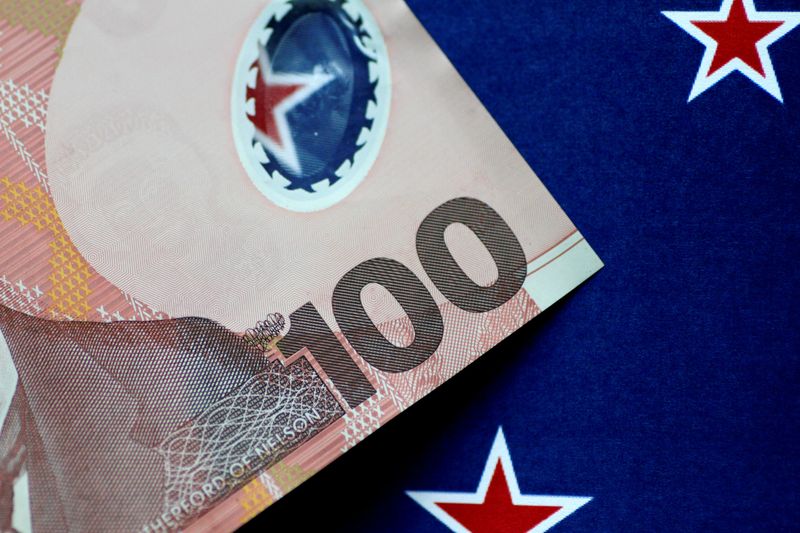2/2

© Reuters. FILE PHOTO: A New Zealand Dollar note is seen in this picture illustration June 2, 2017. REUTERS/Thomas White/Illustration
2/2
NZD/USD
-0.46%
Add to/Remove from Watchlist
Add to Watchlist
Add Position
Position added successfully to:
Please name your holdings portfolio
Type:
BUY
SELL
Date:
Amount:
Price
Point Value:
Leverage:
1:1
1:10
1:25
1:50
1:100
1:200
1:400
1:500
1:1000
Commission:
Create New Watchlist
Create
Create a new holdings portfolio
Add
Create
+ Add another position
Close
By Rae Wee and Alun John
LONDON/SINGAPORE (Reuters) – Sterling slid on Wednesday after lower-than-expected British inflation data suggested the Bank of England might not have to raise rates quite as high as expected, while the latest dovish comments from the Bank of Japan caused the yen to soften.
The pound dropped as much as 0.8% against the dollar to $1.2931, and also weakened versus the euro after figures showed British inflation fell more than expected in June and was at its slowest in more than a year at 7.9%.
That was the British currency’s lowest in a week against the dollar, as it continued to roll off a 15-month high of $1.3144 hit Thursday.
“Good news at last for UK inflation. Below forecast headline and core,” said Kenneth Broux, head of corporate research FX and rates, at Societe Generale (OTC:SCGLY).
“Profit taking in sterling as a result should not be a surprise as we expect Gilt yields to come down vs US Treasuries and Bunds. The pound was overbought after the run-up in recent weeks.”
It was all about central banks in Asia Pacific as well, and the dollar climbed to a one-week high on the Japanese yen and was last up 0.4% at 139.6.
Bank of Japan Governor Kazuo Ueda said on Tuesday there was still some distance to sustainably achieving the central bank’s 2% inflation target, signalling his resolve to maintain ultra-loose monetary policy for the time being, in contrast to the hawkishness at other major central banks.
The New Zealand dollar was also volatile, briefly spiking after consumer inflation came in slightly above expectations in the second quarter, but last trading down 0.5% at $0.6245.
Elsewhere, the euro was steady at $1.1222, away from the previous session’s 17-month peak of $1.1276, and that left the dollar index slightly stronger at 100.1, rebounding from a 15-month low hit in the previous session.
The dollar has paused its steep decline last week in the wake of a cooler-than-expected U.S. inflation reading that led to traders pricing in an imminent peak in Federal Reserve rates.
Economists polled by Reuters expect the Fed to deliver a 25-basis-point rate hike at its upcoming policy meeting this month, with a majority betting that will bring an end to the central bank’s current monetary tightening cycle.
Source: Investing.com




























